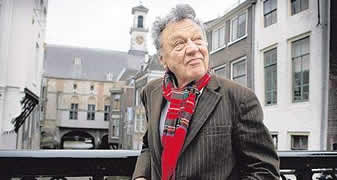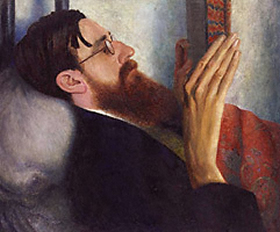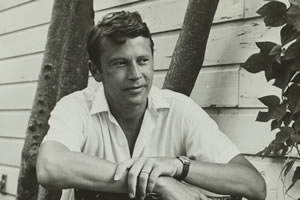De Nederlandse dichter, vertaler en journalist Jan Eijkelboom werd op 1 maart 1926 in Ridderkerk geboren. Zie ookalle tags voor Jan Eijkelboom op dit blog.
Non omnis moriar*
Soms, als een distel door dik asfalt,
barst er een regel poëzie
de taal van mensen in.
Zo werd de Dapperstraat een plek
van hoge adel en duurt de Mei
al meer dan honderd jaar.
Zo wijs ik soms mijn kleine zoon
des avonds op een fonkelend verschijnsel
en roep: O Venus, felle star.
Hij corrigeert mij wel, maar geeft
het later toch misschien weer door.
Het lijkt zo’n magere troost,
te bedenken dat lang na je dood
een jonge vrouw een woord van jou
nog op de tong kan nemen.
Het is ook wel een weelderig genoegen,
niet geheel dood te hoeven.
* niet geheel zal ik sterven
O
O, dat ik ooit nog eens
een vers met o beginnen mocht,
dat het dan ongezocht een ode
werd waarin zeg maar een dode
dichteres tot leven kwam
ofwel een warm lief lijf
tot marmer werd waardoor
voor wie daarvoor gevoelig is
een adem ging als was het
leven nu voorgoed betrapt.
Maar nee, wat bij mij ingaat
moet bezinken,
verdicht zich tot een sprake-
loos substraat
dat roerig wordt en uit wil breken
en soms vermomd de mond verlaat.
O, klonk het nog eens ongehinderd.

Jan Eijkelboom (1 maart 1926 – 28 februari 2008)
Lees verder “Jan Eijkelboom, Franzobel, Jim Crace, Franz Hohler, Jacques Chessex”


